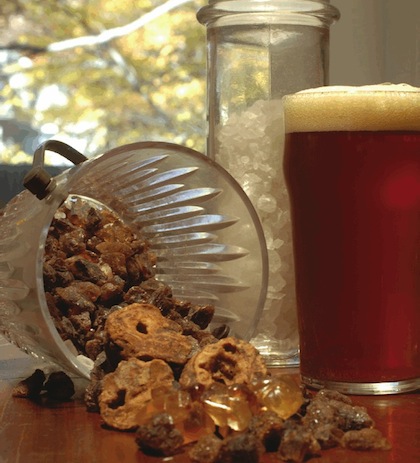Those first few months of craft beer epiphany are heady indeed, filled with moment after moment of wide-eyed revelation. These palate-popping new brews had little in common with the mainstream stuff that you seemingly couldn’t live without. Craft beer had flavor, dark beer was actually delicious, hops in excess were heavenly, and most importantly, it was proudly all-malt. Then you discovered that some of the most respected breweries in the world used sugar and adjuncts to actually enhance their beer. Those ingredients were horrible no more (I’ve never had such reservations). The number brewed with unmalted grains and sugars is huge. Sugars of one sort or another have been used for centuries to stretch or replace malt, boost the gravity for storage or effect, or simply to modify the flavor and drinkability. It is the last point that is of most interest to us. Those that can be used in homebrewing are quite diverse, from pure, light dextrose to rugged, cloying molasses, there are plenty to choose from, and many great homebrews that yearn for them.
The many shades and flavors of sugars are dependent upon their botanical origin, method of production, and degree of refinement. Sugarcane and beets are the source for most granulated and syrup sugars, but honey, agave and sorghum also provide delicious raw materials, as do maple, date and palm trees. There are dozens of different varietal honeys. Maple syrup and agave nectar are unique enough to give lighter brews a special touch. Plain dextrose (corn sugar) is invaluable in some recipe applications. Belgian candi sugar, be it blonde, amber, dark, rock, granulated, or syrup, is a homebrew shop staple. Molasses, a malt substitute, coloring and flavoring agent in American Colonial times, offers some potent flavors and comes in at least three shades. Golden syrup (light treacle) and dark treacle are quite similar to light and dark molasses. Rice syrup (brown or white) and rice syrup solids and can be purchased in homebrew shops or elsewhere. Lactose, used mostly in milk stout for residual sweetness, is yet another specialized homebrewing product. The humble brown sugar (white sugar mixed with a bit of molasses) is also a useful brewing ingredient.

(Kinsley Dey)










